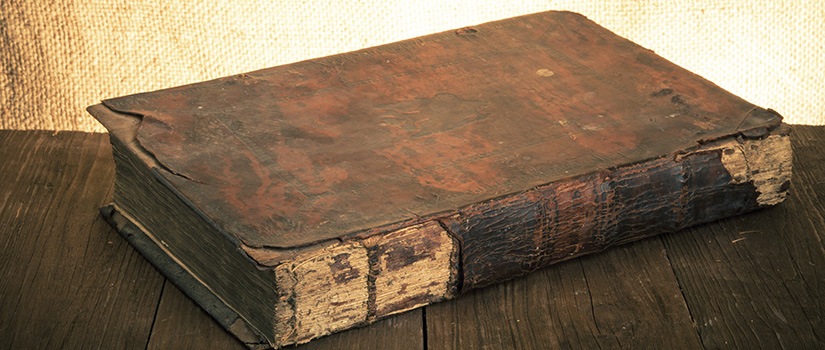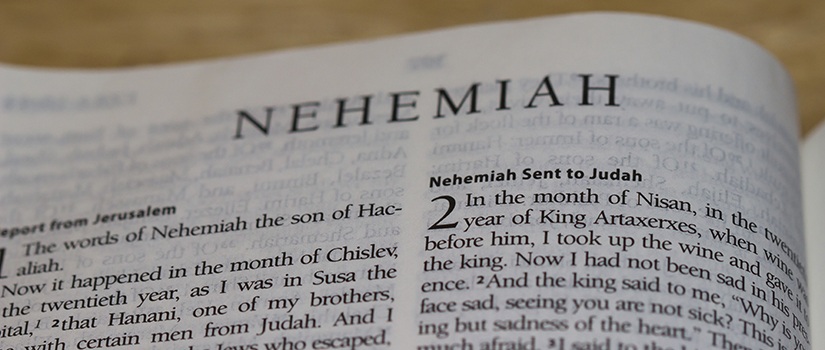Ahab Covets Naboth’s Vineyard
Ahab covets Naboth’s vineyard and when Naboth would not sell his vineyard to him Jezebel schemes to have him killed so that Ahab could have it.
~~~~~~~~~~~~~~~~~contents~~~~~~~~~~~~~~~
1. Introduction
2. Ahab Covets Naboth’s Vineyard
3. The Power And Dangers Of Covetousness
4. Ahab’s Disappointment And Displeasure
5. Sin’s Friendships And What They Lead To
6. Jezebel Schemes To Slay Naboth
7. The Corruption Of The Elders Of Jezreel
~~~~~~~~~~~~~~~~~~~~~~~~~~~~~~~~~~~~~~~
1. Introduction:
The events described in this chapter (1 Kings 21) sealed Ahab’s fate, along with the fate of Jezebel, in fact, all of Ahab’s house.
After the call of Elisha, there is a blank of as much as five years in Elijah’s history. We can readily gather that these years were neither unprofitable nor idle, but were spent in one or more of the Schools Of The Prophets.
These “Sons Of The Prophets,” as they were called, are first mentioned in scripture in (1 Kings 20:35). Though the prophetic schools probably owed their existence to Samuel, and, most certainly, their development.
Yet Elijah can be found when wanted and is ready for any work to which God may appoint him. At last, the occasion comes, and along with the occasion comes the stern Desert Prophet.
Ahab has been occupied with war with Syria (1 Kings 20), the arch-enemy of Israel, in which he suffered humiliating consequences at the first, and only the miraculous intervention of Jehovah saved them. (1 Kings 20:28-30)
After the war with Syria, Ahab busies himself with improving his many vineyards and gardens he has bought or confiscated during his reign. He had built himself a palace in Jezreel, a beautiful retreat, a sort of, “get away,”twenty-two miles from the main palace in Samaria. A place where he liked to go and relax or carouse.
2. Ahab Covets Naboth’s Vineyard:
The chapter opens with Ahab on a visit to this retreat and looking out from an upper terrace he spies a neighboring vineyard which he immediately covets.
History records few crimes more flagitious, nor more cruel and cold-blooded than the one recorded in (1 Kings 21). and just as the crime has few parallels, so has the historian. There are few equals in his description and pathos of it.
It is like one of those paintings by the hand of a master who with stroke after stroke of the brush reveals every detail of the scene before him. Or like a Greek Tragedy which holds one spellbound on the edge of their seat as scene after scene unfolds before them.
There Are Four Scenes which we will discuss and let God speak to our hearts as we read the story.
The First Scene finds Ahab looking out with covetous eyes upon one of his subject’s vineyard, and making overtures to the owner who rejects the offer, and he reacts like a spoilt child.
1 Kings 21:1. And it came to pass after these things, that Naboth the Jezreelite had a vineyard, which was in Jezreel, hard by the palace of Ahab king of Samaria.
2. And Ahab spake unto Naboth, saying, give me thy vineyard, that I may have it for a garden of herbs, because it is near unto my house: and I will give thee for it a better vineyard than it; or, if it seem good to thee, I will give thee the worth of it in money.
3. And Naboth said to Ahab, the Lord forbid it me, that I should give the inheritance of my fathers unto thee.
4. And Ahab came into his house heavy and displeased because of the word which Naboth the Jezreelite had spoken to him: for he had said, I will not give thee the inheritance of my fathers. And he laid him down upon his bed, and turned away his face, and would eat no bread.
3. The Power And Dangers Of Covetousness:
“In vain our fields and flocks increase our store if our abundance makes us wish for more.” (Sir. John Denham)
Covetousness = “An insatiable desire for wealth or possessions, or for another’s possessions.”
“A thirst for power or dominion over others.”
“A desire to acquire more that one needs or deserves.”
Exodus 20:17. (The Tenth Commandment) “Thou shalt not covet ………”
Luke 12:15. (Jesus’ warning) “And he said unto them, Take heed, and beware of covetousness: for a man’s life consisteth not in the abundance of the things which he possesseth.” (KJV)
Paul Tells Us That Covetousness Excludes One From,
Sacred Offices, (1 Timothy 3:13;)
God’s Kingdom, (Ephesians 5:5.)
Bible Examples Of Covetousness:
Scriptures are filled with examples and warnings against the awful consequences of covetousness. (We will mention four)
1. Laban, An Older Brother Of Rebekah.
Genesis 24:29. And Rebekah had a brother, and his name was Laban: and Laban ran out unto the man, unto the well.
30a. And it came to pass, when he saw the earring and bracelets upon his sister’s hands, …. (KJV)
Laban’s eye was upon the golden rings and bracelets that were upon his sister Rebekah, which had been given to her by Abraham’s servant. This was an indication that greed and covetousness had started early in his life.
The second scripture (Genesis 31:36-43), lets us see how this awful vice has come to full fruit in Laban’s old age, in his dealings with his Nephew, Jacob, fifty years later.
Genesis 31:36. And Jacob was wroth, and chode with Laban: and Jacob answered and said to Laban, what is my trespass? What is my sin, that thou hast so hotly pursued after me?
37. Whereas thou hast searched all my stuff, what hast thou found of all thy household stuff? Set it here before my brethren and thy brethren that they may judge betwixt us both.
38. These twenty years have I been with thee; thy ewes and thy she-goats have not cast their young, and the rams of thy flock have I not eaten.
39. That which was torn of beasts I brought not unto thee; I bare the loss of it; of my hand didst, thou require it, whether stolen by day or stolen by night.
40. Thus I was; in the day the drought consumed me, and the frost by night; and my sleep departed from mine eyes.
41. Thus have I been twenty years in thy house; I served thee fourteen years for thy two daughters, and six years for thy cattle: and thou hast changed my wages ten times.
42. Except for the God of my father, the God of Abraham, and the fear of Isaac, had been with me, surely thou hadst sent me away now empty. God hath seen mine affliction and the labour of my hands and rebuked thee yesternight. (KJV)
2. Haman:
Esther 5:13. Yet all this availeth me nothing, so long as I see Mordecai the Jew sitting at the king’s gate. (KJV)
These were the words of Haman, Prime Minister of Ahasuerus king of Persia.
By some royal favor, Haman had been exalted to the highest dignity in the kingdom. Before him daily, hundreds bowed, if not insincere, at least in servile homage.
To many men of power and authority, this is of more value and importance to them, than all their wealth and monetary compensation. Even an exclusive seat at the Queen’s table was his.
Esther 5:9. (Haman as he was leaving the Queen’s banquet) Then went Haman forth that day joyful and with a glad heart: but when Haman saw Mordecai in the king’s gate, that he stood not up, nor moved for him, he was full of indignation against Mordecai.
10. Nevertheless, Haman refrained himself: and when he came home, he sent and called for his friends, and Zeresh his wife.
11. And Haman told them of the glory of his riches, and the multitude of his children, and all the things wherein the king had promoted him, and how he had advanced him above the princes and servants of the king.
12. Haman said moreover, yea, Esther the queen did let no man come in with the king unto the banquet that she had prepared but myself; and tomorrow is I invited unto her also with the king.
13. Yet all this availeth me nothing, so long as I see Mordecai the Jew sitting at the king’s gate. (KJV)
Yet there was one thing which was enough to poison the cup of his joy, the Jew, Modicai, at the king’s gate, refused to do reverence to the Amalekite at the side of the king’s throne.
Esther 3:5. And when Haman saw that Mordecai bowed not, nor did him reverence, then was Haman full of wrath. (KJV)
It seemed a small matter; nevertheless, in public confession to his wife and friends, Haman avows, that, while in the opinion of thousands he was the happiest man in Persia, his life was actually miserable, because one knee would not bow before him as he went in and out of the king’s gate.
What a poor thing is a worldly rank, or wealth when it cannot tolerate one disappointment. How little to be envied are those who, having no real annoyances, invent them.
And what an awful thing is the retributive justice of God, when Haman ends his ambitions and guilty career on the very gallows he had prepared for Mordecai. (Esther 7:9-10)
3. The third example we have in Achan’s own words.
Joshua 7:20. And Achan answered Joshua, and said, indeed I have sinned against the Lord God of Israel, and thus and thus have I done:
21. When I saw among the spoils a goodly Babylonish garment, and two hundred shekels of silver, and a wedge of gold of fifty shekels weight, then I coveted them, and took them; and, behold, they are hidden in the earth in the midst of my tent, and the silver under it. (KJV)
The sin of covetousness cost Achan, not only his own life but the lives of his entire family.
4. The fourth example as told by Jesus himself.
Luke 12:15. And He said unto them, Take heed, and beware of covetousness: for a man’s life consisteth not in the abundance of the things which he possesseth.
16. And He spake a parable unto them, saying, the ground of a certain rich man brought forth plentifully:
17. And he thought within himself, saying, what shall I do because I have no room where to bestow my fruits?
18. And he said, this will I do: I will pull down my barns, and build greater, and there will I bestow all my fruits and my goods.
19. And I will say to my soul, soul, thou hast many goods laid up for many years; take thine ease, eat, drink, and be merry.
20. But God said unto him, thou fool, this night thy soul shall be required of thee: then whose shall those things be, which thou hast provided?
21. So is he that layeth up treasure for himself, and is not rich toward God.(KJV)
In the light of the aforementioned incidents let us turn our attention back to Ahab and his covetous attitude towards Naboth’s vineyard and the resulting consequences which cost, not only Naboth his life, but the lives of all of Ahab’s house.
1. First scene Ahab covets Naboth vineyard.
Ahab, while on a visit to his summer palace, is planning to enlarge and beautify his gardens; but space is limited. The object of his desire was to acquire the land nearest to the palace with the intent of converting it into a garden.
What such a garden might bear, and what a pleasant view could be enjoyed from the windows of the palace when he looked out upon it in the early morning. What really caught Ahab’s eye was a vineyard that joined hard against the Palace wall.
This was not the first time that he had cast his covetous eyes upon this nice piece of land. This vineyard was owned by a long time citizen of Jezreel, in fact, Naboth could trace his ancestral roots back to the conquest of Canaan by Joshua.
Naboth, according to Josephus (antiq., book viii, Ch. 13, sec. 8), was of an illustrious family, and evidently, more illustrious still by being one of the “seven thousand” who had not bowed unto Baal. (1 Kings 19:18)
Yet this vineyard though, Ahab must have at whatever cost, the Palace grounds are incomplete without it.
One of the arguments used by Samuel to discourage the people from desiring a king, he said, “He will take your fields, and your vineyards, and your olive-yards, even the best of them, …” (1 Samuel 8:14)
Naboth is sent for. We then hear the king making overtures to the owner. There is a smile on Ahab’s face. His words are smoother than butter. Surely Naboth will do well to sell or exchange on such liberal terms. He is offered, in exchange, either land or money, even “a better vineyard.” (1 Kings 21:2)
Naboth, doubtless, in things lawful would have been happy to gratify the king’s desire. But no! Naboth shrinks back from Ahab in horror at the idea. He cannot, he will not do this thing and sin against God.
1 Kings 21:3. And Naboth said to Ahab, the Lord forbid it me, that I should give the inheritance of my fathers unto thee. (KJV)
“I will not sell, not only for my family’s sake, but it is a religious duty. The land belongs to God.”
Leviticus 25:23. The land shall not be sold for ever: for the land is mine; for ye are strangers and sojourners with me. (KJV)
<st









